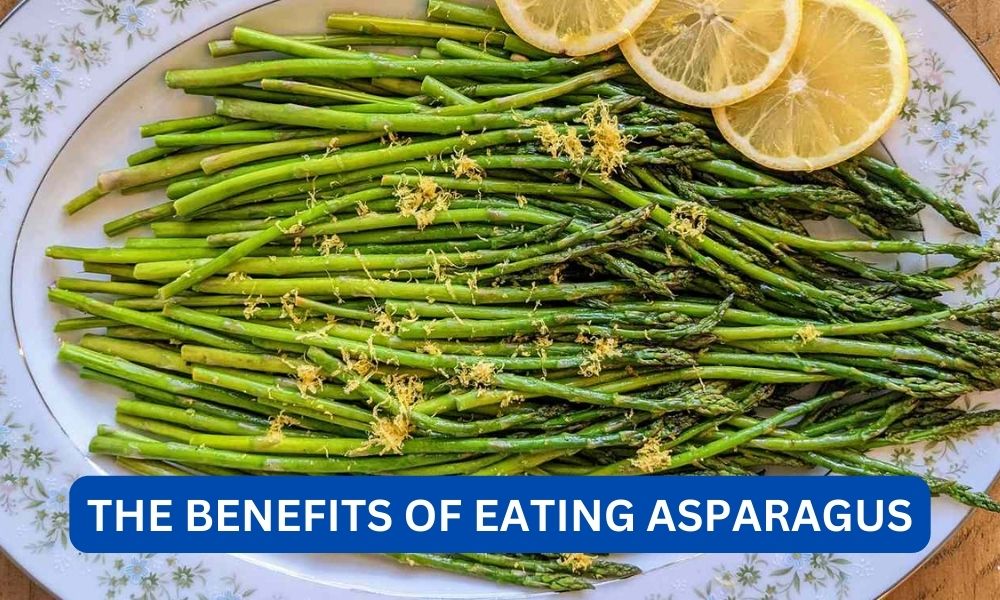Asparagus, also known as the “queen of vegetables,” is a popular spring vegetable that is loved for its unique flavor and versatility in cooking. But aside from its delicious taste, asparagus also offers a wide range of health benefits that make it a valuable addition to any diet. In this article, we will explore the nutritional value of asparagus and the various benefits it provides for our overall health and well-being.
Contents
Rich in Essential Vitamins and Minerals
Asparagus is a nutrient-dense vegetable that is packed with essential vitamins and minerals. One cup of cooked asparagus (approximately 180 grams) contains:
- Calories: 27
- Protein: 3 grams
- Fiber: 3 grams
- Vitamin A: 20% of the recommended daily intake (RDI)
- Vitamin C: 12% of the RDI
- Vitamin E: 8% of the RDI
- Vitamin K: 70% of the RDI
- Folate: 34% of the RDI
- Potassium: 6% of the RDI
- Iron: 6% of the RDI
- Magnesium: 6% of the RDI
As you can see, asparagus is a rich source of vitamins A, C, E, and K, as well as folate, potassium, iron, and magnesium. These vitamins and minerals play crucial roles in maintaining our overall health and preventing various diseases.
Read:What are the benefits of divorce mediation?High in Antioxidants
Asparagus is also a great source of antioxidants, which are compounds that help protect our cells from damage caused by free radicals. Free radicals are unstable molecules that can cause oxidative stress, leading to chronic diseases such as cancer, heart disease, and Alzheimer’s disease.
One study found that asparagus contains high levels of antioxidants such as glutathione, rutin, and quercetin, which have been linked to a reduced risk of chronic diseases. These antioxidants also have anti-inflammatory properties, which can help reduce inflammation in the body and prevent diseases associated with it.
May Improve Digestive Health
Asparagus is a good source of dietary fiber, with one cup providing 3 grams of fiber. Fiber is essential for maintaining a healthy digestive system as it helps regulate bowel movements and promotes the growth of beneficial bacteria in the gut.
Moreover, asparagus contains a type of fiber called inulin, which acts as a prebiotic. Prebiotics are non-digestible carbohydrates that feed the good bacteria in our gut, helping them thrive and improve our digestive health.
May Help with Weight Loss
Asparagus is a low-calorie and low-fat vegetable, making it an excellent choice for those trying to lose weight. One cup of cooked asparagus contains only 27 calories and less than 1 gram of fat.
Read:What are the benefits of riding a bike?Furthermore, asparagus is high in fiber, which can help you feel full for longer and reduce your overall calorie intake. It also contains the amino acid asparagine, which has been found to have diuretic properties, meaning it can help flush out excess water and reduce bloating.
May Lower Blood Pressure
High blood pressure, also known as hypertension, is a common health problem that can increase the risk of heart disease and stroke. Asparagus contains a compound called asparaptine, which has been found to have a diuretic effect, meaning it can help lower blood pressure by increasing the excretion of sodium and water from the body.
Moreover, asparagus is a good source of potassium, a mineral that helps regulate blood pressure by counteracting the effects of sodium. A diet high in potassium has been linked to a reduced risk of high blood pressure and cardiovascular disease.
May Improve Brain Function
Asparagus is a good source of folate, a B vitamin that plays a crucial role in brain function. Folate is essential for the production of neurotransmitters, which are chemicals that transmit signals between nerve cells in the brain.
Studies have shown that a deficiency in folate can lead to cognitive impairment and an increased risk of neurodegenerative diseases such as Alzheimer’s and dementia. Therefore, including asparagus in your diet can help improve brain function and protect against age-related cognitive decline.
Read:What are the health benefits of pumpkin seeds?How to Incorporate Asparagus into Your Diet
Now that we know about the various health benefits of asparagus, let’s explore some delicious ways to incorporate it into our diet.
Roasted Asparagus
Roasting asparagus is a simple and delicious way to enjoy this vegetable. Simply toss trimmed asparagus spears with olive oil, salt, and pepper, and roast in the oven at 400°F for 10-15 minutes until tender. You can also add some garlic or parmesan cheese for extra flavor.
Asparagus Soup
Asparagus soup is a creamy and comforting dish that is perfect for a chilly day. Sautee chopped asparagus with onions, garlic, and vegetable broth, then blend until smooth. You can also add some cream or coconut milk for a richer and creamier soup.
Asparagus Salad
Asparagus is a great addition to salads, adding a unique flavor and texture. You can either blanch the asparagus and add it to a mixed green salad or grill it and serve it as a warm salad with a vinaigrette dressing.
Asparagus Stir-Fry
Stir-frying asparagus with other vegetables and protein is a quick and easy way to enjoy this vegetable. Simply sautee asparagus with your choice of protein, such as chicken or tofu, and other vegetables like bell peppers, mushrooms, and onions. Add some soy sauce and serve over rice for a delicious and healthy meal.
Conclusion:
In conclusion, asparagus is not only a delicious vegetable but also a highly nutritious one. It is rich in essential vitamins and minerals, high in antioxidants, and may provide various health benefits such as improved digestive health, weight loss, and lower blood pressure. So next time you’re at the grocery store, be sure to pick up some asparagus and incorporate it into your meals for a tasty and healthy addition to your diet.









